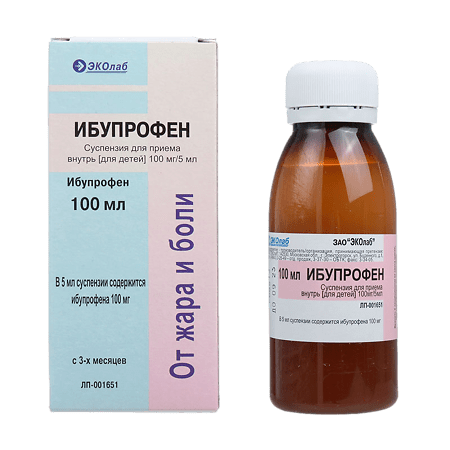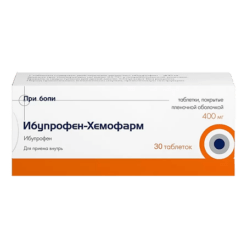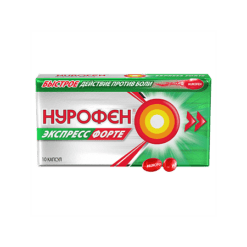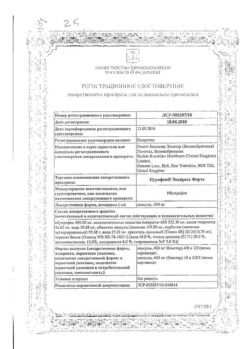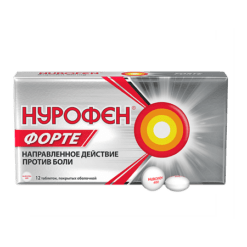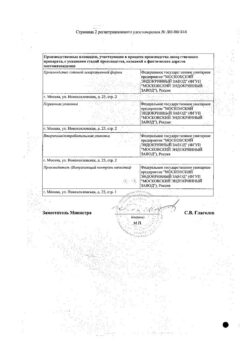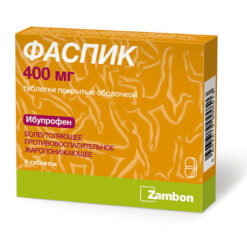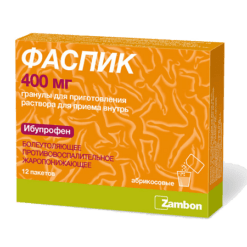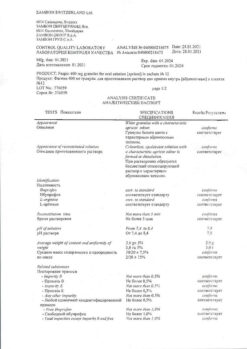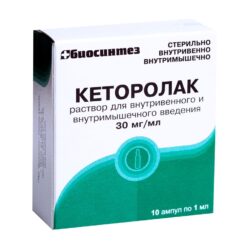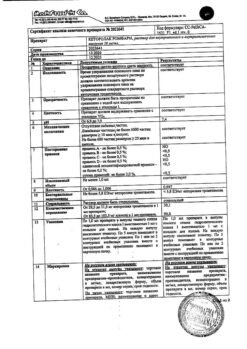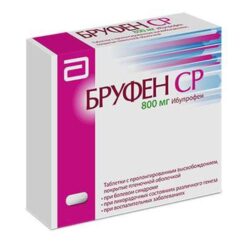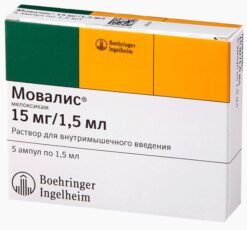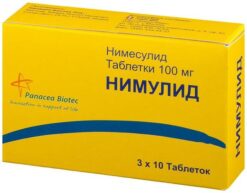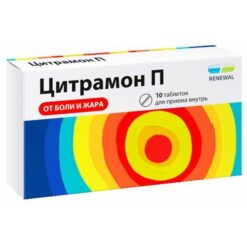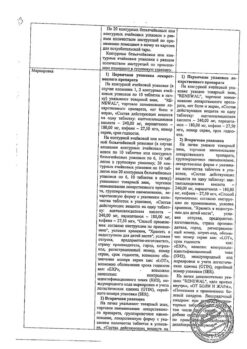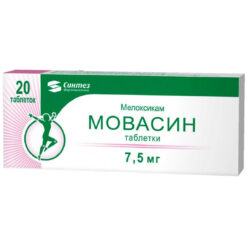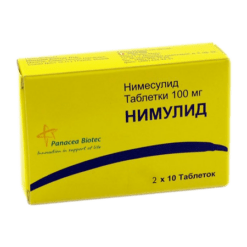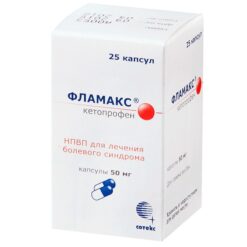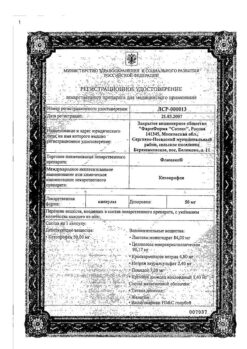No products in the cart.
Ibuprofen, 100 mg/5 ml suspension 100 ml
€2.92 €2.43
Description
Ibuprofen is a nonsteroidal anti-inflammatory drug, a derivative of phenylpropionic acid.
It has anti-inflammatory, analgesic and antipyretic effects.
The drug effect is due to inhibition of prostaglandin synthesis by blocking the enzyme cyclooxygenase.
Inhibits platelet aggregation. With prolonged use it has a desensitizing effect.
Indications
Indications
Ibuprofen is used for children from 3 months to 12 years for symptomatic treatment as an antipyretic for acute respiratory diseases, influenza, childhood infections, other infectious and inflammatory diseases and post-vaccination reactions accompanied by an increase in body temperature.
The drug is used as a symptomatic analgesic for pain of mild or moderate intensity, including headaches and toothaches, migraines, neuralgia, ear and throat pain, sore throat, sprain pain, muscle pain, rheumatic pain, joint pain. The drug is intended for symptomatic therapy, reducing pain and inflammation at the time of use, does not affect the progression of the disease.
Pharmacological effect
Pharmacological effect
Ibuprofen is a non-steroidal anti-inflammatory drug, a derivative of phenylpropionic acid.
It has anti-inflammatory, analgesic and antipyretic effects.
The effect of the drug is due to inhibition of prostaglandin synthesis by blocking the enzyme cyclooxygenase.
Suppresses platelet aggregation. With prolonged use it has a desensitizing effect.
Special instructions
Special instructions
During long-term use, non-steroidal anti-inflammatory drugs can cause damage to the gastric mucosa, peptic ulcers and bleeding from the digestive tract. During long-term treatment with NSAIDs, monitoring of the peripheral blood picture and the functional state of the liver and kidneys is necessary. When symptoms of gastropathy appear, careful monitoring is indicated, including esophagogastroduodenoscopy, a blood test to determine Hb, hematocrit, and a stool test for occult blood.
Interaction with other drugs Ibuprofen should not be used simultaneously with other non-steroidal anti-inflammatory drugs (for example, acetylsalicylic acid reduces the anti-inflammatory effect of ibuprofen and increases side effects). If possible, the simultaneous administration of ibuprofen and diuretics should be avoided, due, on the one hand, to a weakening of the diuretic effect and, on the other, to the risk of developing renal failure. Ibuprofen weakens the effect of antihypertensive drugs (angiotensin convertase inhibitors, -adrenergic drugs, thiazides).
Inhibits the hypotensive effect of ACE inhibitors, while simultaneously reducing their excretion by the kidneys. Ibuprofen enhances the effect of oral hypoglycemic agents (especially sulfonylureas) and insulin. Inducers of microsomal oxidation phenytoin, ethanol, barbiturates, zixorin, rifampicin, phenylbutazone, tricyclics (antidepressants) increase the production of hydroxylated active metabolites, increasing the risk of severe hepatotoxic reactions. Inhibitors of microsomal oxidation – reduce the risk of hepatotoxicity.
Strengthens the effect of indirect anticoagulants, antiplatelet agents, fibrinolytics (increasing the risk of hemorrhagic complications). Increases the concentration of digoxin in the blood. Strengthens the toxic effect of methotrexate and lithium preparations. Caffeine enhances the analgesic effect.
Active ingredient
Active ingredient
Ibuprofen
Contraindications
Contraindications
Hypersensitivity, erosive and ulcerative diseases of the gastrointestinal tract (GIT) in the acute stage (including gastric and duodenal ulcers, ulcerative colitis, Crohn’s disease), complete or incomplete combination of bronchial asthma, recurrent nasal polyposis and paranasal sinuses and intolerance to acetylsalicylic acid or other non-steroidal anti-inflammatory drugs (including a history), blood clotting disorders (including hemophilia, prolongation of bleeding time, bleeding tendency, hemorrhagic diathesis), active gastrointestinal bleeding; severe renal failure (creatinine clearance less than 30 ml/min), progressive kidney disease, severe liver failure or active liver disease, condition after coronary artery bypass surgery, confirmed hyperkalemia, inflammatory bowel disease, hereditary fructose intolerance due to the presence of sorbitol in the composition of the drug.
WITH CAUTION
Take for – liver cirrhosis with portal hypertension; liver and/or renal failure, heart failure, nephrotic syndrome, hyperbilirubinemia, peptic ulcer of the stomach and duodenum (history), gastritis, enteritis, colitis, blood diseases of unknown etiology (leukopenia and anemia), pregnancy (II-III trimester), during lactation. If it is necessary to determine 17-ketosteroids, the drug should be discontinued 48 hours before the study; During the treatment period, ethanol intake is not recommended; to reduce the risk of developing adverse events from the gastrointestinal tract
The minimum effective dose should be used for the shortest possible short course. In patients with bronchial asthma or other diseases associated with bronchospasm, Ibuprofen may increase the risk of bronchospasm. The use of the drug in these patients is permissible only if great caution is observed, and in case of difficulty breathing, you should immediately consult a doctor.
Side Effects
Side Effects
from the digestive system: NSAIDs – gastropathy (nausea, vomiting, abdominal pain, heartburn, loss of appetite, diarrhea, flatulence, pain and discomfort in the epigastric region), ulceration of the gastrointestinal mucosa (in some cases complicated by perforation and bleeding); irritation, dryness of the oral mucosa or pain in the mouth, ulceration of the gum mucosa, aphthous stomatitis, pancreatitis, constipation, hepatitis;
from the respiratory system: shortness of breath, bronchospasm; from the senses: hearing loss, ringing or tinnitus, reversible toxic optic neuritis, blurred visual perception or diplopia, dryness and irritation of the eyes, swelling of the conjunctiva and eyelids (allergic origin), scotoma;
from the nervous system: headache, dizziness, insomnia, anxiety, nervousness and irritability, psychomotor agitation, drowsiness, depression, confusion, hallucinations, rarely – aseptic meningitis (more often in patients with autoimmune diseases);
from the cardiovascular system: development or worsening of heart failure, tachycardia, increased blood pressure;
from the urinary system: acute renal failure, allergic nephritis, nephrotic syndrome (edema), polyuria, cystitis; allergic reactions: skin rash (usually erythematous, urticaria), skin itching, angioedema, anaphylactoid reactions, anaphylactic shock, bronchospasm, fever, erythema multiforme exudative (including Stevens-Johnson syndrome), toxic epidermal necrolysis (Lyell’s syndrome), eosinophilia, allergic rhinitis;
from the hematopoietic organs: anemia (including hemolytic, aplastic), thrombocytopenia and thrombocytopenic purpura, agranulocytosis, leukopenia; other: increased sweating; the risk of developing ulcerations of the gastrointestinal mucosa, bleeding (gastrointestinal, gingival, uterine, hemorrhoidal), visual impairment (impaired color vision, scotoma, amblyopia) increases with long-term use in large doses.
Interaction
Interaction
When administered concomitantly, Ibuprofen may cause a decrease in the diuretic effect of furosemide.
When used together, Ibuprofen enhances the effect of diphenin, coumarin anticoagulants, and oral hypoglycemic drugs.
Overdose
Overdose
Symptoms of ibuprofen overdose in children: abdominal pain, nausea, vomiting, lethargy, headache, tinnitus, depression, drowsiness, metabolic acidosis, coma, hemorrhagic diathesis, decreased blood pressure, convulsions, apnea, acute renal failure, liver dysfunction, tachycardia, bradycardia, atrial fibrillation, forced diuresis. Children under 5 years of age are especially prone to apnea, coma, and seizures.
Serious consequences associated with the toxic effect of the drug usually appear after taking a dose exceeding 400 mg/kg body weight (i.e. 80 recommended single doses). If an overdose is suspected, consult a doctor immediately.
Treatment for overdose: gastric lavage, taking activated carbon, alkaline drinking, symptomatic therapy
Storage conditions
Storage conditions
In a dry place, protected from light. Keep out of the reach of children.
Shelf life
Shelf life
Shelf life: 2 years. Do not use after expiration date.
Manufacturer
Manufacturer
EKOlab, Russia
Additional information
| Shelf life | Shelf life is 2 years. Do not use after the expiration date. |
|---|---|
| Conditions of storage | In a dry, light-protected place. Keep out of the reach of children. |
| Manufacturer | Ecolab, Russia |
| Medication form | oral suspension |
| Brand | Ecolab |
Other forms…
Related products
Buy Ibuprofen, 100 mg/5 ml suspension 100 ml with delivery to USA, UK, Europe and over 120 other countries.

